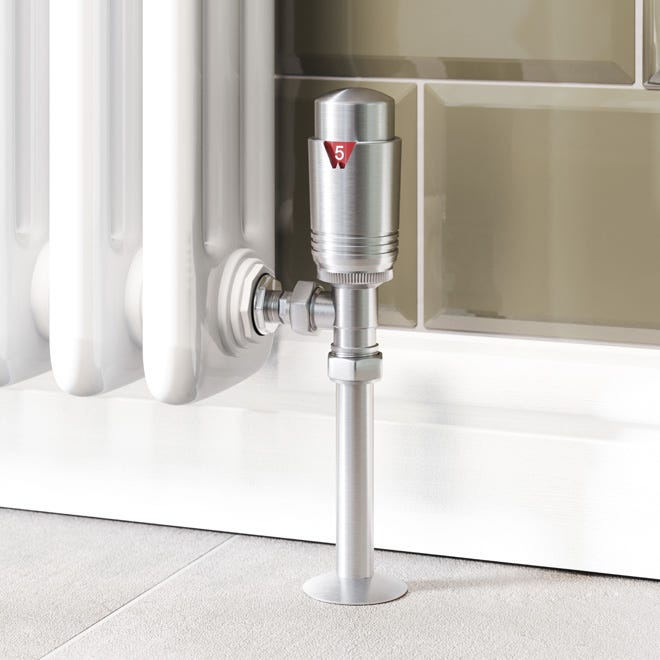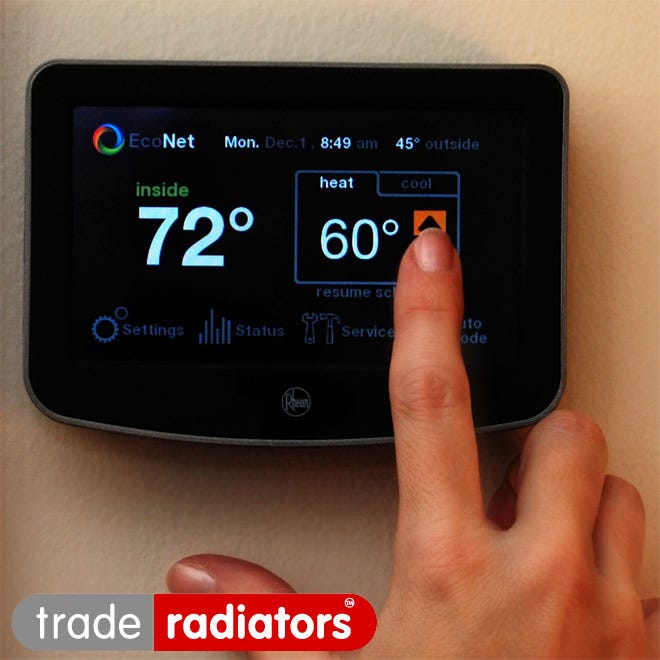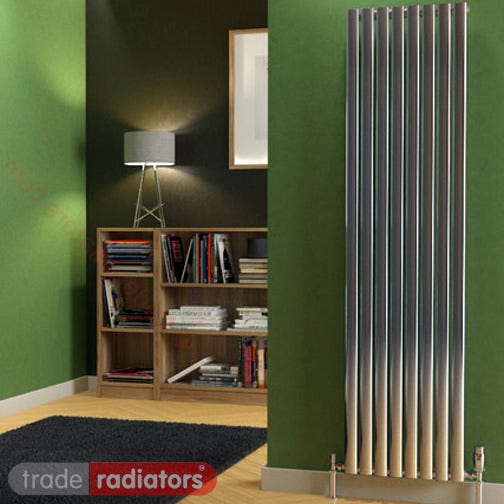Top tips to keep your home warm in winter

Our energy bills can become very expensive in the UK during winter due to the amount of time that we need our central heating on full blast.
In order to maximise your energy efficiency and to ensure you're not wasting your money, we've compiled this useful list of 10 tips to help you keep your heating costs down this winter.
1. Use your boiler's timer
Make use of the programming functionality on your boiler and time your central heating to come on and off exactly when you need it.
By setting your heating around when you're getting up, going to bed and when you're in or out, you'll be heating your home exactly when you need it without using up energy unnecessarily.
2. Use thermostatic radiator valves

Installing thermostatic radiator valves (TRVs) on your radiators can help you control the temperature in each of your rooms. These are different from manual radiator valves.
This is particularly useful for rooms that don't get a lot of use, like a spare bedroom or second bathroom. When you switch on the heating to heat the rooms you do use, correctly-set TRVs will make sure that you aren't wasting energy by heating up the rooms you don't. Browse our full selection to see all the types and styles of valves we have on offer, including TRVs.
3. Install insulation
A huge amount of heat is lost out of the roof and walls of an uninsulated home, so rectifying this problem will have a massive impact in lowering your heating bills.
Loft and cavity wall insulation are the most common forms available and can save enough on your heating bills to offset the initial costs fairly quickly. Helpfully, there are often schemes and grants running from energy suppliers that can help with the cost of installation.
4. Move your furniture
Due to restrictions on space, many of us will need to put sofas, arm chairs and other pieces of furniture in front of radiators. The result is that the backs of the furniture get well heated but block much of it from circulating around the room.
Even if you don't have the space to move a sofa completely out of the way of a radiator, just pulling it forward a couple of inches will allow more heat into the room.
5. Turn your heating down by 1°C

This is a really simple but effective tip with research showing it could lower your heating bills by as much as 10%.
There have probably been times when you've had the central heating running for a long period of time and actually feel a bit too hot, particularly upstairs.
Would turning your heating down by 1°C really have a noticeable effect on your comfort and wellbeing? If you think you could do it, you'll likely see a positive impact on your energy bills.
6. Change your energy supplier
If it's been years since you've switched energy supplier (or you've never done it), you could be missing out on some substantial savings by changing companies or going onto a new tariff.
Sites like Money Saving Expert are always encouraging people to review their gas, electricity and water bills because of the great deals some suppliers are will to give to new customers.
If you think you are due a better deal on your energy bills, then this could be a great way to heat your home more cheaply.
7. Put more clothes on

A bit of an obvious one, but still worth mentioning as putting on extra layers can make a world of difference.
Putting on an extra jumper or a thicker pair of socks can instantly make you feel warmer without the need to turn up your heating. Wearing pyjamas, joggers or thermal underwear in bed can also warm you up overnight and improve your quality of sleep.
8. Use draught excluders
The bottoms of external doors are a very common area of heat loss and can easily and cheaply be sorted out by putting across a sausage-style draught excluder.
Likewise, thick curtains drawn across windows can help to keep warmth in and stop any cold air from creeping into the room. If you have a letter box that is letting in cold air, getting a cover would be a worthwhile investment.
Anything you can do to block cold air from coming in will help keep your home warmer.
9. Upgrade your boiler
If your boiler is over 10-15 years old, you might want to consider replacing it with a new one. Boiler technology has vastly improved in recent years and modern combination boilers are much more efficient that boilers from the past.
New boilers are expensive so it's not a decision to be taken lightly. However, the impact on your heating bills and the improved delivery of heat and hot water around your home may well be worth the expense.
If upgrading is not financially possible, get a Gas Safe Registered heating engineer around to perform annual boiler maintenance to ensure everything is running as smoothly as possible.
10. Upgrade your radiators

In similar fashion to your boiler, if your radiators are over 15 years old you could consider having them replaced.
Over time, water reacts with the metal in your radiators causing internal corrosion. Small shards of metal can flake of and settle at the bottom of your radiators in the form of sludge. A radiator that is cold at the bottom and warm at the top is a classic example of this.
A power flush could solve the problem and get your radiators fully functional again, but if they are very old, the internal corrosion might be too much and it would be better to replace them completely.
View All Our Radiators
RELATED ARTICLES
• How to heat a home cheaply and efficiently
